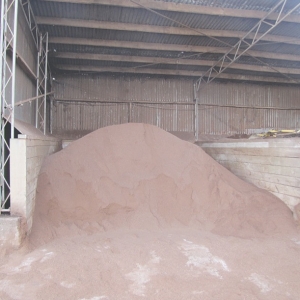Ingham Feeds & Nutrition consultant Pip Gale, of Tasmania, affirms the use of PKE as a forage replacement and provider of total energy when pasture supply is limited, “but be aware of its strengths and weaknesses in the context of your herd’s nutrient requirements and milk solids production goals.”
Gale agrees with a recent DairyNZ article stating that metabolisable energy is the main factor limiting milk production in grass-fed cows. “As DairyNZ says, PKE is reasonable quality feed for cows when they’re short of pasture and total feed intake. However in lactating cows, what we’re really trying to optimise is rumen fermentation and productivity, and PKE doesn’t contribute much in this regard.”
Gale says when there are more adequate volumes of pasture available for intake and/or farmers target higher levels of milk production per cow, farmers need to consider the type of energy required. “Then it does matter whether a supplement contains fibre, starch or sugar.”
Gale says the objective of any dairy farming system is to encourage the rumen bacteria to produce volatile fatty acids, particularly propionate. This is a precursor for the production of blood glucose and the metabolites that circulate in the blood before reaching the mammary gland.
“If a farmer is looking to increase milk volumes and maintain milk solid percentages, it is blood glucose that drives the synthesis of milk. PKE provides energy to the cow, but it doesn’t have the same impact on blood metabolites as other higher starch and carbohydrate-based feeds, because it doesn’t change your cows’ volatile fatty acid ratios that much.”
He says if a farmer is mainly interested in filling a feed gap, PKE can play a role. This can particularly be so in the second half of the dairy season, once peak production has been achieved and the farming system is intended to maintain cow condition.
“But there are too many constraints in PKE for fresh cows, and if you’re after milk production, responses will simply be limited. By all means, know its constraints and its value, and use it accordingly.”
He says for that reason farmers can’t evaluate feed value on metabolisable energy (ME) alone.
MJME/kg DM is a calculated or estimated figure from laboratories that is being used with no constraint or context.
“Quite often the cow won’t realise the energy from a feed in the same manner that a lab equation does,” says Gale. “I see over-inflated ME specifications on feed inputs all over the country, but there is no accountability. Dairy industry bodies in New Zealand owe it to their constituents to progress the discussion on dairy nutrition, providing concise messages which clear up the current confusion.”
Gale says the importance of driving and optimising the feeding of rumen bugs can’t be overstated. “These bugs are keen on non-fibre carbohydrates and they have a strong influence on VFA ratios. That’s what you should be looking for in a good quality feed to boost milk production.”
Gale says $/MJ ME has served well historically, but that the discussion needs to move from total energy to the type of energy required by lactating cows at different levels of production and stages of lactation.
“Claims that supplementary feed values are high in energy despite low digestibility only add to the confusion,” says Gale.
















